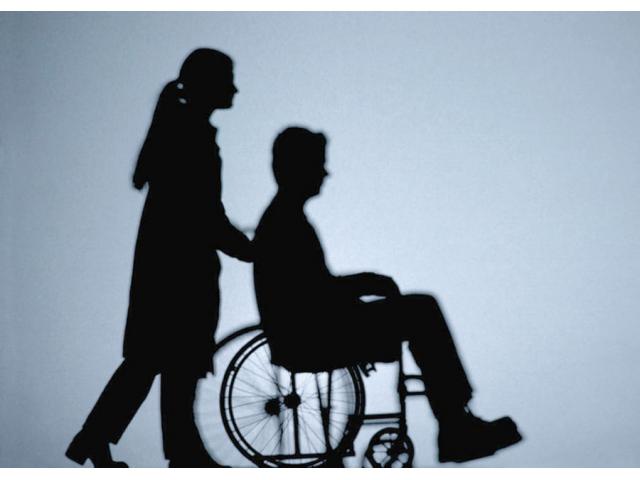Mental Illness Is…
Physical and treatable
Get ready for some big, shocking news: the brain is a part of your body! The brain is the most complex and mysterious organs within the body, and we live with a false idea that we are in control (or should be) of all of our emotions. Many factors influence our brain structure and chemistry as well as the neural pathways that our thoughts travel on. Genetic makeup is a factor, but genetics are not set in stone and do not guarantee that you will get an illness simply because there is a family history. Just as a person can have a predisposition for cancer but may or may not develop cancer, so too mental health issues can be genetic but also triggered by environmental factors like stress, loss, trauma and crisis. Hormones can play a role as well, in cases such as postpartum depression, emotional dysregulation in menopause, or as part of more severe symptoms that some experience in a menstrual cycle.
While these illness are not yet curable, they can be treatable with medical and non-medical options, just like other types of diseases. These can include self-care (diet and exercise, sleep, etc.), sharing your feelings with a counselor, and filling your life with positive meaning. We need to talk about emotional/mental health problems the same we do physical illnesses — if you wouldn’t say it to someone with cancer don’t say it to someone who is struggling with anxiety or depression.
Common
1 in 4 Americans will experience symptoms of a mental illness within their lifetime. Also, within any given year 1 in 5 adults is experiencing symptoms of a mental illness. The National Alliance for Mental Illness provides other statistics here. If the Church is doing its job to reach out to the hurting and marginalized, then the rates of mental illness within the Church may actually be higher. You are certainly not alone in your struggle, even as a follower of Jesus.
Not your fault
We tend to blame ourselves for emotional struggles. Why? Because when we feel helpless or face the unknown we look for answers and a place to lay blame. Turn on the news when tragedy strikes — almost immediately the pundits begin to engage in a blame game to try to explain the situation or imagine possibilities of prevention in the future. We also sometimes blame God or become angry with him, but we must remember that our diseased world is a result of original sin and the curse. It is Satan’s masterpiece.
Some people argue, “Are there ways in which we can create anxiety and depression or other emotional problems in our own lives?” Of course. Sin and unhealthy relationships or choices can cause problems. But nothing happens in a vacuum, so there are almost always underlying root issues that may not be your fault that are part of the reason you are engaging in harmful behavior. And a clinical mental illness is a physical disorder not caused by your behavior or personal sin.
Not removed by a “quota” of faith
A recent study by the Christian group LifeWay research looked at attitudes about mental illness within the church. They found that 48% of Christians believe that prayer and Bible study alone can overcome mental illness. Would 48% of Christians believe that prayer and Bible study alone can overcome cancer? Diabetes? High cholesterol? Of course we believe that God can and does instantly heal all kinds of disease, but we understand that miracles are a work of the Holy Spirit and not of ourselves. When we turn faith into a measurable quantity that we have to have “enough” of, we place the power in our own hands to accomplish our own miracle.
You do not experience clinical depression, anxiety, Bipolar Disorder, PTSD, or any other illness because you lack faith. We experience these because our bodies can be corrupted by disease. We do not get to dictate the timeline of our healing, but we have hope that at the very least in our eternal lives we will no longer suffer.
Not evidence of being a “2nd class Christian”
We have created a class system within the Church that is based on comparing ourselves with others. If we do not fit the mold of “happy Christian” we often feel we are not good enough. Earlier this year while on vacation I visited a church in which the pastor said that he noticed people appeared happy when they came to church on Sundays but then were struggling throughout the week. He asserted, “Let’s not just be happy on Sundays, let’s be happy all week long.” While I’m sure everyone would love to be happy all the time, it is simply not the reality of life.
What happens if you are not happy? Do you have to fake it? If the Church wants to become a safe and authentic community, we must accept others for exactly who they are. You must accept yourself for exactly who you are. In this way we can journey with Jesus together, being honest and vulnerable. 2 Corinthians 12:9 comes to mind here — if His strength is made perfect when we are weak, why are we trying to force being strong all the time?
A place to meet Christ in the midst of suffering
Tim Keller writes in his book “Walking with God Through Pain and Suffering” that the secular world views suffering as a bad thing, but suffering is truly at the heart of Christianity. Jesus voluntary chose a path of suffering, and told his followers they would suffer. If we know that Jesus lived in a place of suffering, then we must ask, “How can I meet Christ in my place of suffering?”
Rather than a spiritual deficit, emotional struggles are a powerful place for spiritual growth. We may need to redefine what “spiritual growth” looks like — have we created a picture of being a happy, upper-middle class American and defined that as what it means to be spiritually mature? James 1 says that perseverance must finish its work so you can be mature and complete, not lacking in anything. Perseverance requires something difficult, for it is impossible to persevere without struggle.
An opportunity for grace
What is “grace”? Some have defined “grace” as God’s unmerited favor given to us. Unmerited means we do not have to earn it, and “favor” is a type of kindness and blessing. Can you give yourself grace today? What does it mean to be kind to yourself not because you have earned it but because God has given it to you? What does it mean for you to offer grace to a friend who is struggling? What would it mean for the Church to become a place of grace for those who are emotionally suffering?
Check out my other blog post about “A Different Kind of Silence” in which I suggested that as those who have suffered from mental illness begin to speak out and share their stories, the Church should respond with gentle silence. Just listening. A compassionate hug. Weep with those who weep. In doing so, we encounter the love and grace of Christ who allows us to come to Him exactly as we are.












